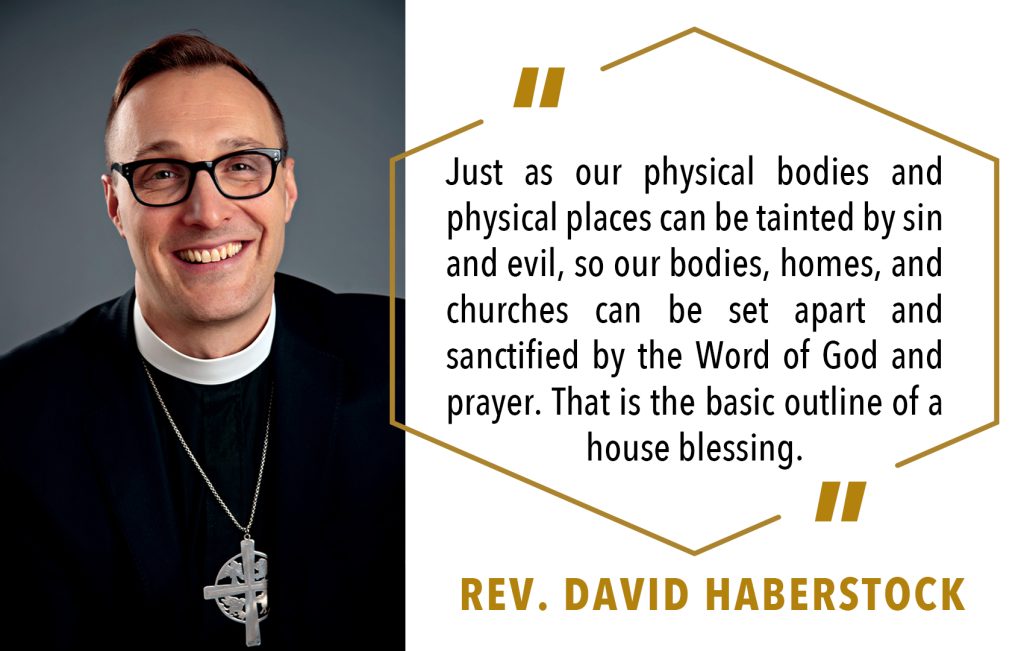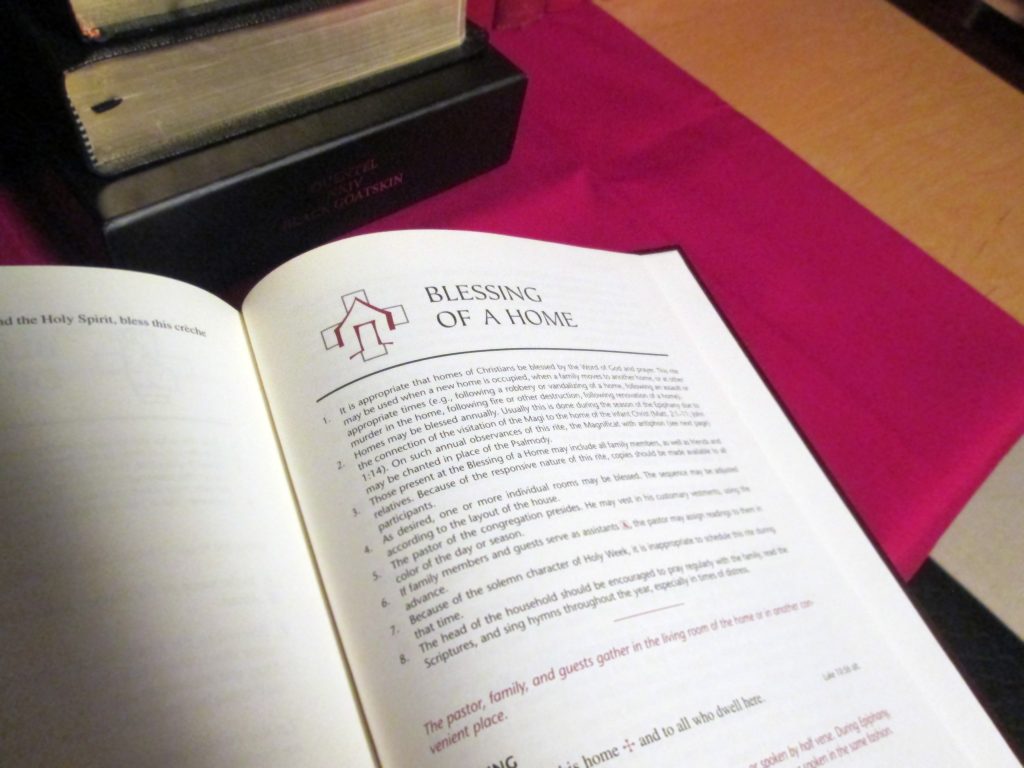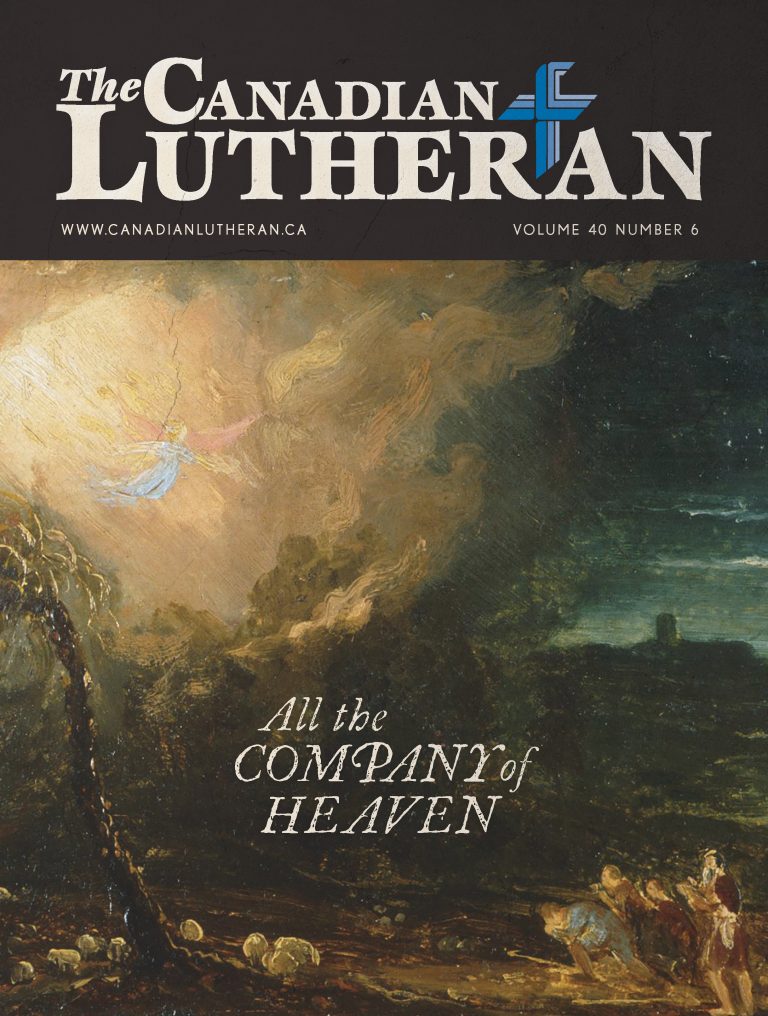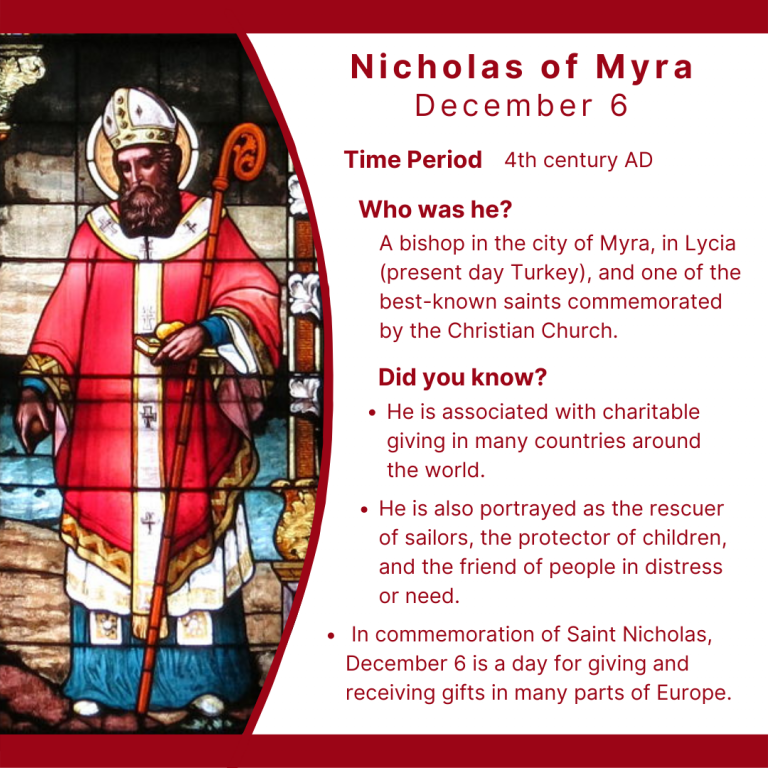Blessing a home

by David Haberstock
“The times they are a-changin’.” Over the last 20 years, most every pastor has had people come with complaints of strange phenomena occurring in their home, especially at night. It seems since the advent of Rationalism and the scientific method, we all forgot that Satan and his minions are out there. However, in the last 50+ years, as Western society has broadly turned away from the Lord and His Church, the days are such that the Word of God and the name of God (through Holy Baptism) are no longer in the ears and hearts of people. This affords the evil one the opportunity for mischief, mayhem, and misery.
When people have come to me with such concerns, I often introduce them—after exploring whether there are not obvious physical causes of these issues—to the morning and evening prayer in Luther’s Small Catechism. For lesser affliction, invoking God’s name, confessing the Creed, and praying the Lord’s Prayer is often enough to drive demons away. This helpful daily practice (along with Luther’s Morning and Evening prayers) tends to give people increased peace and rest.
However, the next step in such situations, and also a regular tool in normal pastoral care, is the House Blessing. This was always a fairly normal part of pastoral practice, especially in the past, but it is becoming common again!
It makes sense, of course, that our homes be blessed regularly—just like we repent of and receive forgiveness of sins corporately every Sunday, and receive the Body and Blood of Jesus weekly. Why not also bless the places where we sleep through the dark hours of the night?
Scripture tells us that everything created by God is good, especially when sanctified by the Word of God and prayer (1 Timothy 4:4-5). Just as our physical bodies and physical places can be tainted by sin and evil, so our bodies, homes, and churches can be set apart and sanctified by the Word of God and prayer. That is the basic outline of a house blessing. The name of God is invoked in blessing upon a home and all who dwell there. Then, going room by room, Scripture is read in the hearing of those dwelling there, and prayers are offered for the consecration of the home to the Lord.

The Rite for Blessing of a Home in the LSB Agenda (Photo by Luc Lefebvre)
Historically, this often happened during the season of Epiphany (after Christmas) in remembrance of the wisemen visiting the home of the infant Lord Jesus. A priority was placed on home blessings during this season and was part of the pastoral rounds in a parish during that time of year. As such, a practice of “chalking” the door began. “Chalking” was a simple way of marking that that home had been annually blessed.
“Chalking” refers to taking a piece of chalk and marking the door or door frame with 20+C+M+B+24. The first numbers are for the number of centuries since Christ our Lord came to earth in our flesh as a baby. The last numbers are for the actual year within the century. The CMB (interspersed with crosses) stand for the Latin words Christus Mansionem Benidicat (“May Christ bless this house”). The numbers indicate that this is done at least annually!
It makes sense, of course, that our homes be blessed regularly—just like we repent of and receive forgiveness of sins corporately every Sunday, and receive the Body and Blood of Jesus weekly. Why not also bless the places where we sleep through the dark hours of the night?
People’s mileage can vary, but such house blessings often remove chronic temptations from your life. Or as one prayer in the rite says: “Drive far from here the snares of the evil one and send Your holy angel to guard, protect, visit, and defend all who dwell in this home.” Other Christians find that more common afflictions—where they feel ill, or discouraged from attending Divine Service on Sunday morning—are lessened or removed.
And if these afflictions return, it is always valuable to ask your pastor to bless your house again. As Scripture says, “Submit to God. Resist the devil and he will flee from you” (James 4:7). Blessing your home—setting it aside to the Lord and His purposes in your family—is a fine way of submitting to the Lord and resisting Satan.
There are, of course, other steps (including increasing your devotional life so that your home is filled with the Word of God and prayer, which drives away the evil one—see Luke 11:24-26) that can be taken if spiritual oppression persists. But blessing a home is a normal part of the pastoral care that Christ’s ministers are to provide to Christ’s sheep. The practice of blessing a home with God’s Word and prayer is one that creates great peace and assurance for us Christians.
NOTE: The Rite for Blessing of a Home and its rubrics (which include the important use mentioned in this article, among others) begin on page 313 in the LSB Agenda.
———————
Rev. David Haberstock is Lutheran Church–Canada (LCC)’s Central Regional Pastor.



